Many people like farm sink's because they are deeper than average and have an exposed front side. Farm sinks can be made from various materials. If you're considering one, you may be wondering what size farm sink fits a 36-inch cabinet. We have the answers for you below!
If you have a 36-inch cabinet, your farm sink should be no more than 33 inches. Generally, farm sinks should always be at least 3 inches smaller than the base cabinet.
Now you know what size farm sink you need for a 36-inch cabinet, but there's much more to cover. For example, do they add value to your home? What are the advantages and disadvantages of farm sinks? We answer these questions and more in this post! With that said, let's dive in!
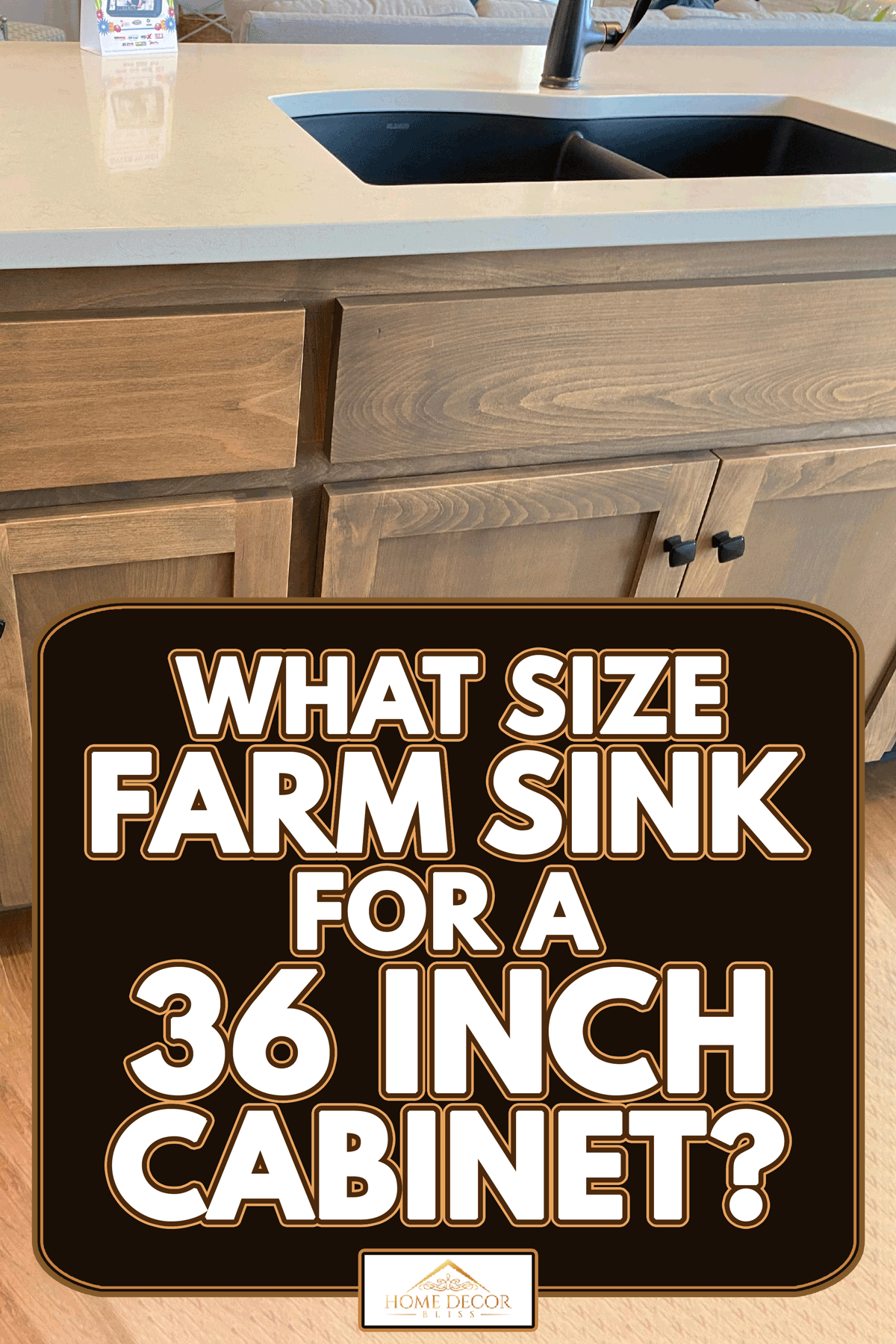
Do Farm Sinks Add Value To Your Home?
In recent years, farm sinks have become very popular. This increase in popularity has resulted in them adding value to homes.
People who install farm sinks add about 30 percent more to their asking price when selling their homes. So, if you want to add value to your home before selling it, installing a farm sink is a great way to do so.
We sometimes add affiliate links and content that was curated and created by our team with the help of advanced ai tools to help showcase the best design styles.
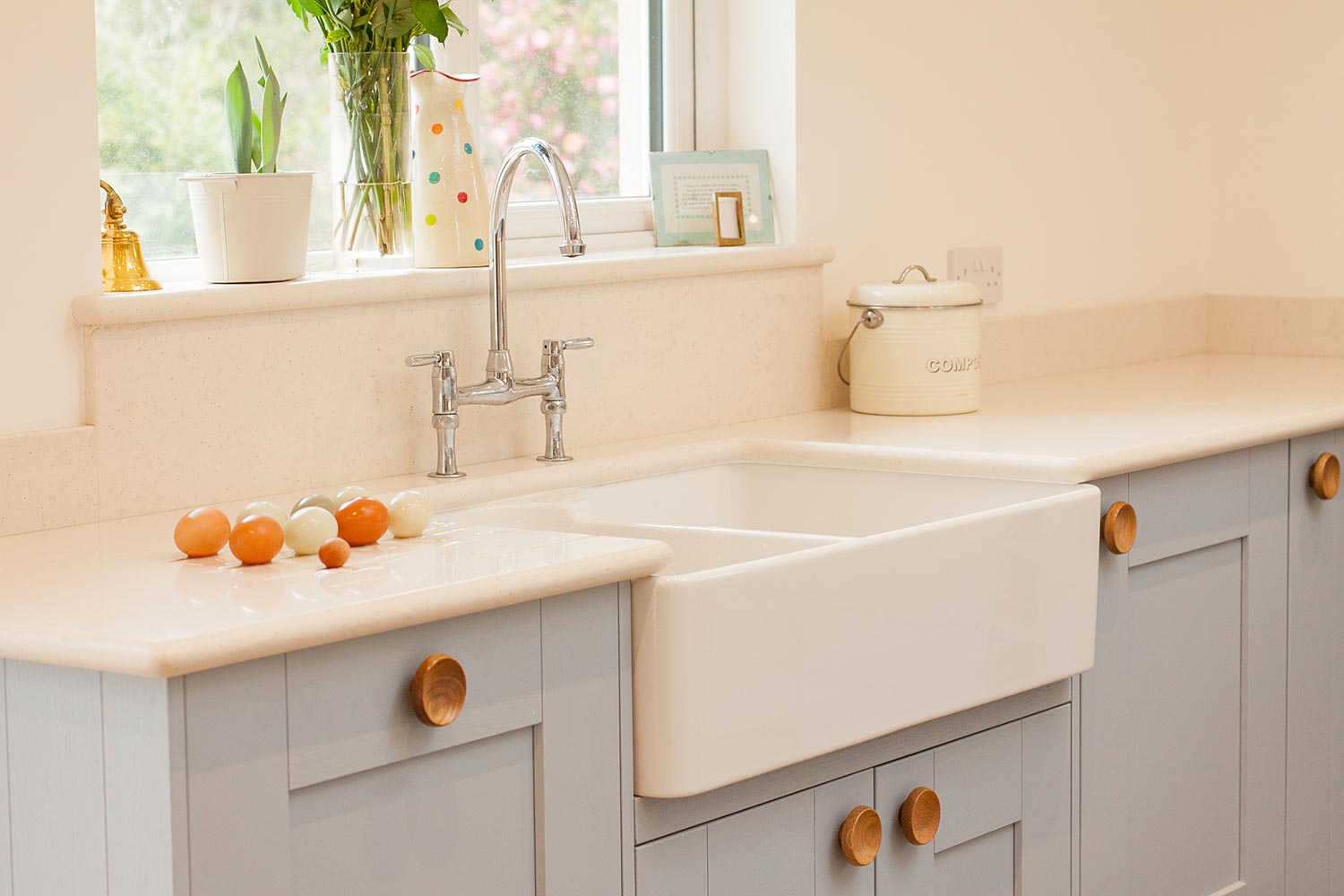
Are Farm Sinks Going Out Of Style?
It's safe to say that farm sinks are very much in style. The "country" or "rural" aesthetic has become very popular in homes, and a farm sink is a great way to channel this specific vibe.
So, while it's ultimately your opinion on whether or not a farm sink is your style, farm sinks are undoubtedly trendy. They also have a classic feel, making them a versatile sink option that never ages.
What Are The Advantages Of Farm Sinks?
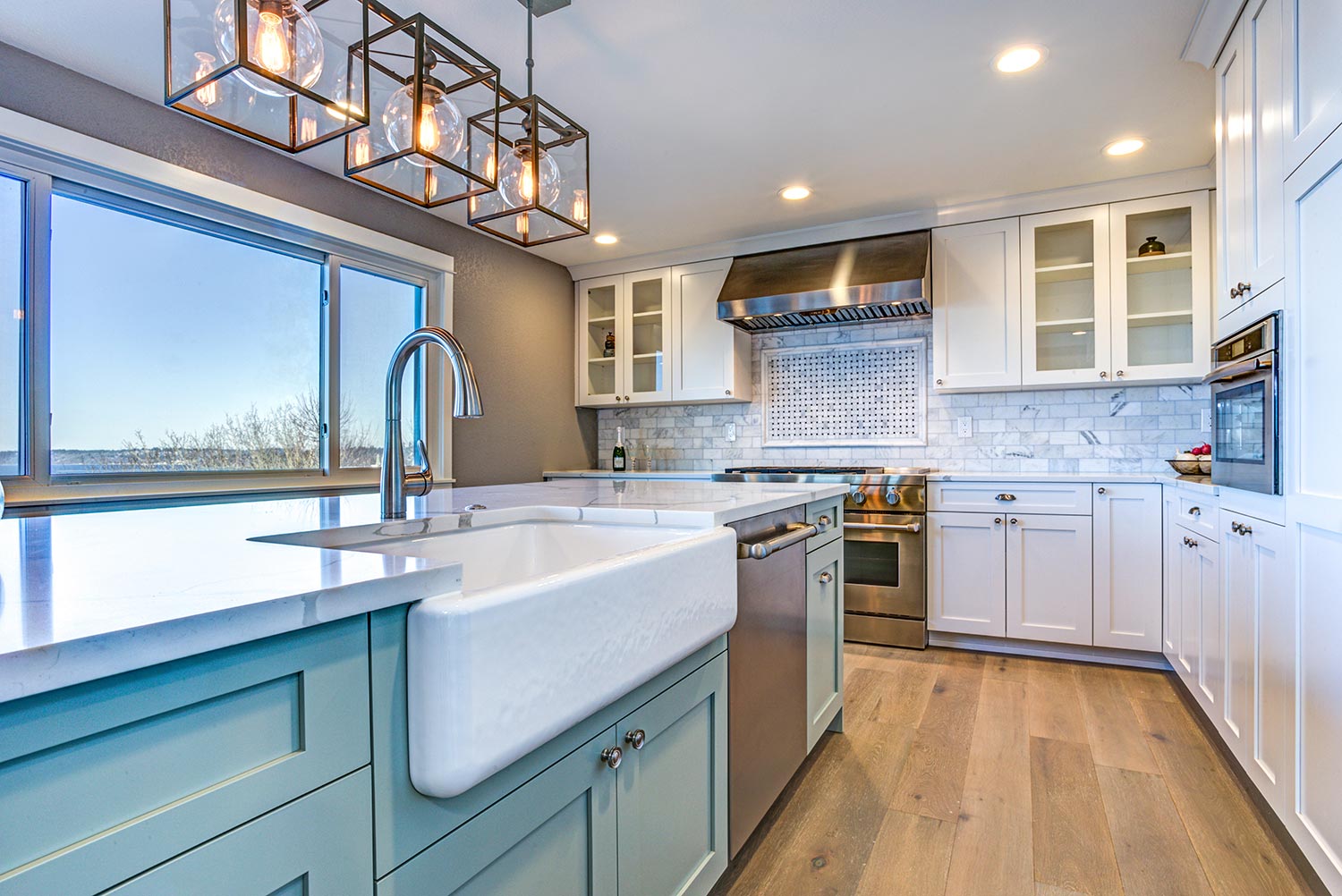
In addition to infusing homes with an elegant, rural aesthetic, farm sinks come with many other advantages. Some of their main benefits include their depth and width, their versatility, and the fact that it's easy to clean them.
Depth And Width
As previously mentioned, farm sinks are deeper and broader than traditional sinks. A farm sink is usually about nine to ten inches deep.
Conversely, today's traditional kitchen sinks are about eight inches deep, making most farm sinks about an inch or two deeper than typical sinks.
Before the standard size of traditional sinks grew to eight inches, most sinks averaged around six inches. So, older sinks can be even smaller than farm sinks, measuring about three to four inches less deep.
Because farm sinks are deeper and wider than classic sinks, it's easier to wash dishes in them.
Specifically, farm sinks make washing larger dishes, such as casserole dishes, much more convenient, as some casserole dishes may not even be able to fit in traditional sinks.
So, if you're a part of a large family that dirties up dishes quickly, or if you bake a lot of casseroles, a farm sink may be a great option. Its larger size will greatly benefit you by simplifying your washing.
Versatility
A farm sink is one of the most versatile sink options out there. When deciding which farm sink you want, you can choose from various sizes, and you can decide if you want a single basin or a double basin.
Additionally, farm sinks come in many different materials. These materials include fireclay, porcelain, stainless steel, and cast iron.
So, one of the greatest perks of a farm sink is that you get to express a lot of creativity when selecting the material you want it to be made from.
Easy To Clean
Those with farm sinks don't have to worry about complex cleaning routines. As mentioned, farm sinks come in various materials, and nearly all of these materials are easy to maintain.
For example, you may only need a sponge to clean a fireclay farm sink.
What Are The Disadvantages Of Farm Sinks?

Though farm sinks have several significant advantages, they do come with some disadvantages.
Three major disadvantages of farm sinks are that they take up more space than traditional sinks, are generally more expensive than conventional sinks, and have a more difficult installation process.
They Take Up More Space
As established, farm sinks are deeper and wider than traditional sinks, which serves as a benefit when you're washing larger dishes. However, a farm sink's size can also be a disadvantage, as a larger size means less space.
Some people dislike that farm sinks take up so much space, which means they have less counter space and less space beneath the sink.
So, if you want a kitchen counter that allows you to put several appliances on it simultaneously, a farm sink might not be the best option for you.
They Are More Expensive Than Traditional Sinks
Because farm sinks are larger than traditional sinks, they tend to cost more. Additionally, some of the materials that farmhouse sinks come in are pretty expensive and, thus, add to the overall cost of the sink.
If you're considering a farm sink, it's vital for you to determine what you value more: how much money you spend or the size and versatility of your sink.
If you're on a strict budget, you may be better off investing in a traditional sink.
However, if you think it's worth spending the extra money to enjoy a larger and more versatile sink, you shouldn't cross a farm sink off your list!
Farm Sinks Have A More Difficult Installation Process
This disadvantage, like the other two, is a result of farm sinks' larger size. Because they're deeper and broader than traditional sinks, farm sinks weigh more, making installing them more difficult.
Also, if you want a farm sink, you'll need a specific type of countertop cut. This is because a farm sink's front side protrudes over the cabinets.
Ensuring that you have this specific countertop cut can add to the difficulty of the installation process.
What Is The Best Material For A Farm Sink?
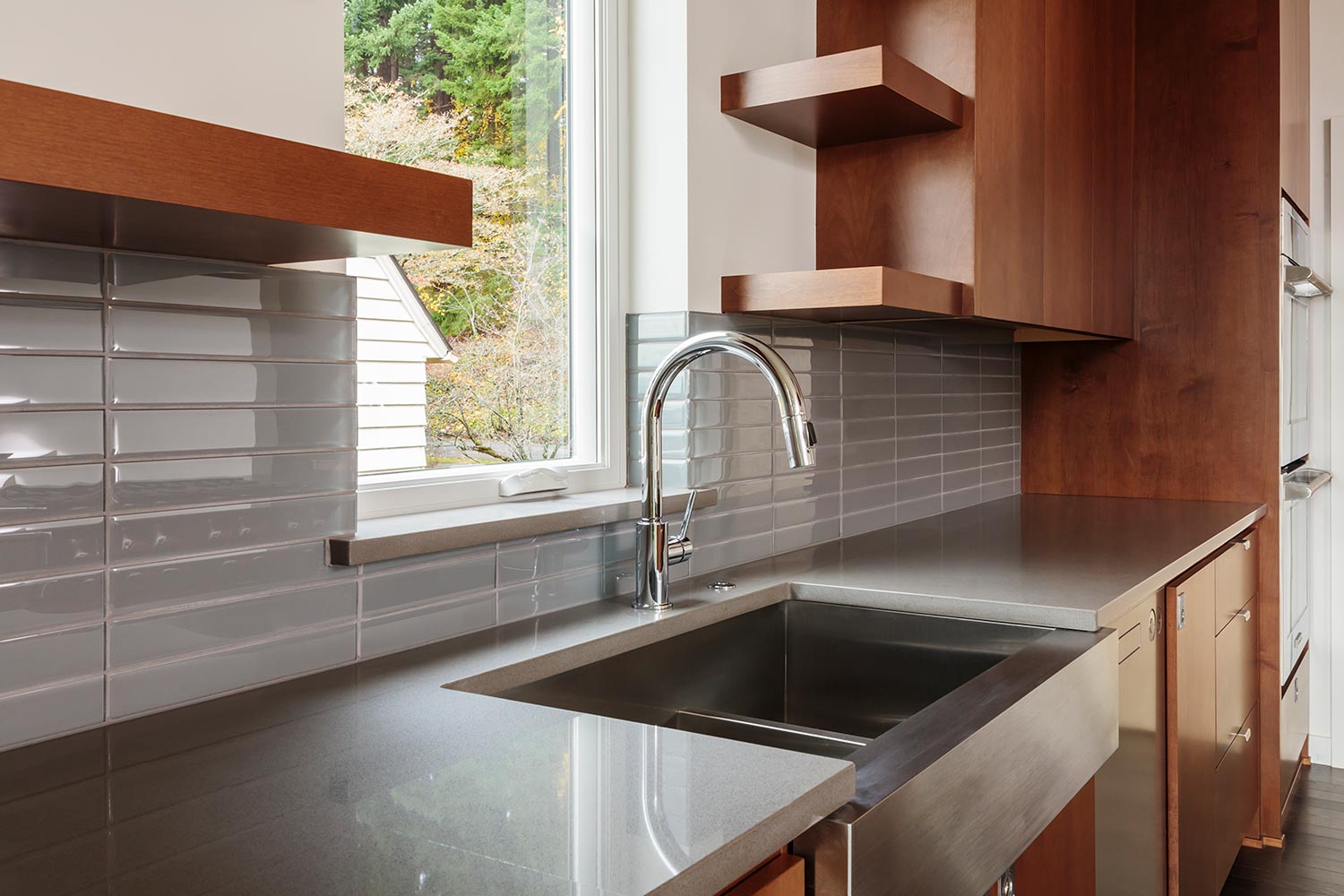
As established, farm sinks come in various materials, including fireclay, porcelain, stainless steel, and cast iron. This gives you several options to choose from, but which one of these options is the best?
The answer depends on the benefits you want your farm sink to have and the drawbacks you're willing to tolerate. Different materials come with various advantages and disadvantages.
Fireclay
Fireclay is made when clay and glaze are blended at high temperatures. It's a very beloved material for farm sinks because it offers a simple, elegant, and endearing aesthetic.
In addition to their attractive appearance, fireclay sinks are highly durable and relatively resistant to scratches, giving them a long lifespan after installation.
However, although fireclay is an attractive and durable material, it has flaws. For one, fireclay is a hefty material, weighing about 100 pounds.
This is significantly larger than traditional stainless steel sinks, weighing anywhere from 25 to 55 pounds. Due to their hefty weight, fireclay sinks need reinforcing cabinetry to be adequately supported.
The need for reinforced cabinetry makes the installation process a bit more complicated.
Another disadvantage of fireclay is that it can chip if you don't properly care for it. However, you can avoid this problem by simply cleaning the sink regularly with a mild cleanser of your choice and a cloth.
Porcelain
The primary benefit of porcelain is its appearance. Like fireclay, a porcelain farm sink gives off a subtly striking, elegant beauty that many people desire.
Porcelain and fireclay are two of the most popular materials for white farm sinks.
Though porcelain and fireclay have similar aesthetics, porcelain is less durable and more likely to suffer from scratches and discoloration.
Porcelain is less expensive than fireclay, but you'll have to determine if this price decrease is worth the disadvantages that this material comes with.
Stainless Steel
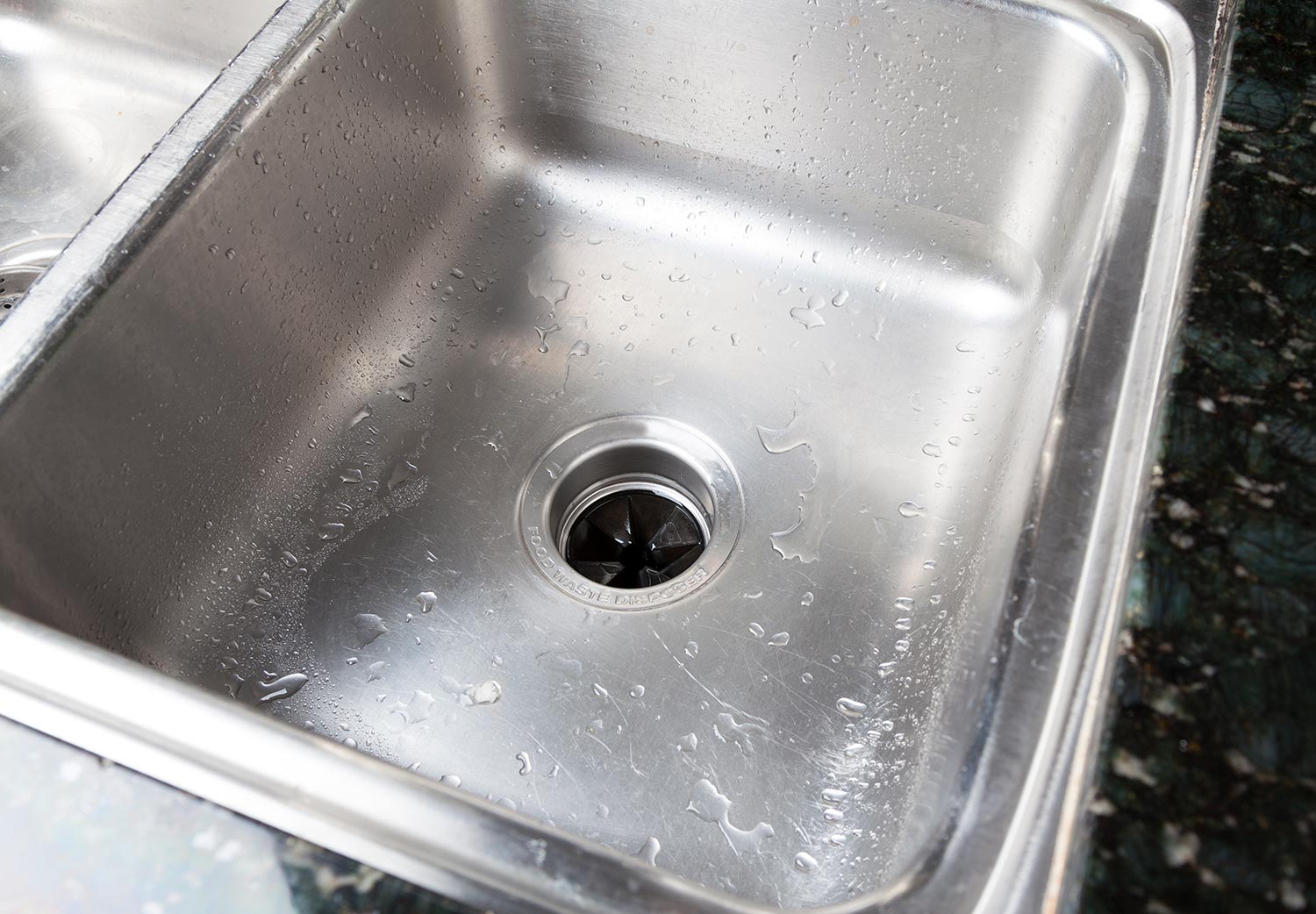
Stainless steel is perhaps the most classic sink material there is. It's beloved by many because it has several benefits, including durability, low cost, low maintenance, and resistance to chipping.
Additionally, stainless steel weighs significantly less than most other materials, making it easy to install.
However, unlike fireclay and porcelain sinks, stainless steel sinks don't offer an aesthetic. This may disappoint those looking to add a bit of elegance to their kitchen.
Also, specific solutions can stain stainless steel, which is not ideal.
Cast Iron
The biggest benefit of cast iron is durability. If properly taken care of, cast iron sinks can last 25 to 30 years or even longer! Cast iron sinks are also gorgeous and versatile, coming in various designs and colors.
However, cast iron is hefty, which slows down the installation process. Cast iron is also coated in enamel, making it very susceptible to chipping.
In Closing
If your cabinets are 36 inches, your farm sink should measure no more than 33 inches. Farm sinks add value to your home and come with an elegant and timeless aesthetic, making them desirable.
However, before adding one to your home, consider their advantages and disadvantages and the materials they come in.
Before you go, check out some of our other articles:
